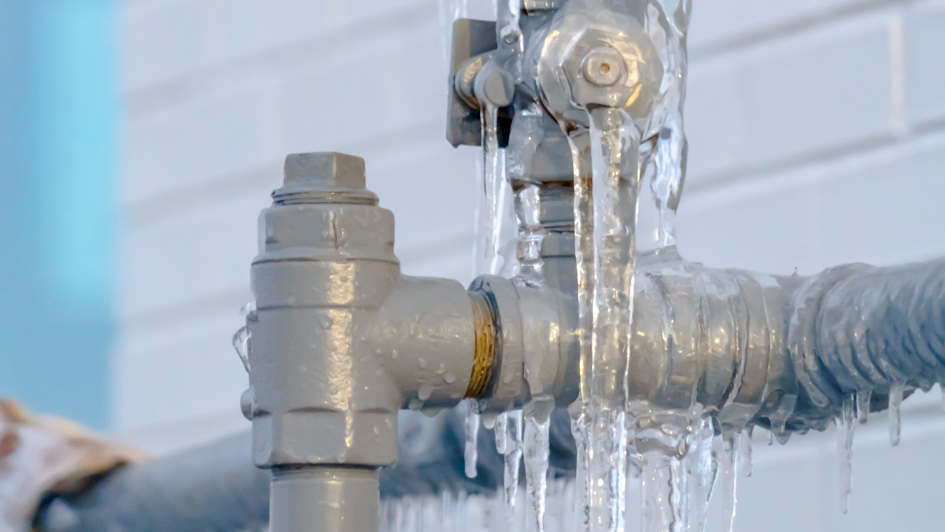
Snow-covered winter weather brings fun activities like sledding down the neighborhood hill or snowball fights in the front yard. However, winter weather can be tough on your home. Extremely cold conditions can cause the water lines in your plumbing to freeze and burst, which could result in severe water damage and long-lasting negative effects.
Once your pipes are frozen, you may want to contact a plumber in Port Clinton to resolve the issue. However, there’s multiple things you can perform on your own to keep this from happening – and even just a bit of prevention can go a long way.
What Pipes Are at a Higher Chance of Freezing
The pipes at the highest risk of freezing are uncovered water lines. Frequent locations for uninsulated pipes are in attic crawlspaces, near exterior walls, in the basement or even running beneath a modular home. Water lines that are not properly insulated are at the highest risk.
How to Stop Pipes from Becoming Frozen in Your Home
Properly insulating uncovered water lines is a great first step to keeping your pipes ice free. You’ll likely find most of these materials from the local plumbing company, and might also already have some somewhere in your home.
Be careful not to wrap other flammable insulation materials where they may light on fire. If you don’t feel confident insulating the pipes by yourself, get in touch with your local plumbing services professional in Port Clinton to handle the job.
If you do choose to insulate the pipes on your own, common insulation materials for pipes include:
- Wraps or roll insulation: Most plumbers, hardware stores and big box retailers offer insulation – commonly fiberglass, foam wraps or pipe sleeves – that you can wrap or fit around your pipes. They are sold in numerous lengths and sizes to fit the needs of your home.
- Newspaper: In a pinch, newspaper can be used as insulation. If the weather is cooling down and you aren’t able to add insulation in time, consider covering uninsulated pipes in this.
- Towels or rags: If you aren’t able to add insulation and don’t have any newspaper handy, wrapping notably vulnerable pipes with towels or clean rags as a final effort can be just enough to keep the cold air away from the pipes.
An additional preventative step you can take to keep pipes from becoming frozen is to seal any cracks that can allow cold air inside your home. Keep an eye on the window frames, which can allow in surprisingly intense drafts. Not only will this help to stop your pipes from freezing, but it will have the extra benefit of making your home more energy efficient.
Five More Ways to Keep Your Pipes from Freezing:
- Open the cabinet doors. Opening the cabinet doors underneath the sinks and other spaces of your home that have pipes will allow more warm air from the rest of the room to reach the pipes.
- Letting water drip. Keeping a flow of water by letting your faucets trickle even just a bit can help thwart frozen pipes.
- Open interior doors. By opening doors for rooms or hallways, your home can be heated more equally. This is especially important if you have a room that is frequently colder or hotter than the rest of the home.
- Close the garage door. The exception to the open doors tip is the garage door, which you should keep shut – particularly if your water lines can be found near or under the garage.
- Keep the heat consistent. Experts recommend setting the thermostat at a persistent temperature and leaving it in place, rather than letting it get colder at night. Set it no colder than 55 degrees.
How to Prevent Pipes from Freezing in an Empty Home
When you’re inside a house, it’s easier to recognize when something breaks down. But what added steps can you try to stop pipes from freezing in a vacant home or vacation home when the consequences from a frozen pipe might not be discovered for days or even weeks?
As with your primary residence, insulating any exposed water lines, opening interior doors throughout the home and winterizing the vacant home are the first steps to attempt first.
Extra Steps to Keep Pipes from Freezing in an Unused Home:
- Leave the heat on. Even though you won't always be home, it’s best to keep the heat on – even if you adjust the thermostat down lower than you would if you were there. As with a primary home, experts recommend keeping the temperature at no colder than 55 degrees.
- Shut water off and drain the lines. If you’re going to be out of the house for several weeks or are winterizing a rustic cabin or cottage, shutting the water off to the house and emptying the water out of the water lines is a good way to prevent pipes from freezing and bursting open. Try not to forget to clear the water out of all appliances, including the hot water heater, as well as the toilets. Make sure you empty all the water from the plumbing. If you're uncertain of how to flush the water from the pipes, or don’t feel confident handling it yourself, a plumber in Port Clinton will be glad to assist.
